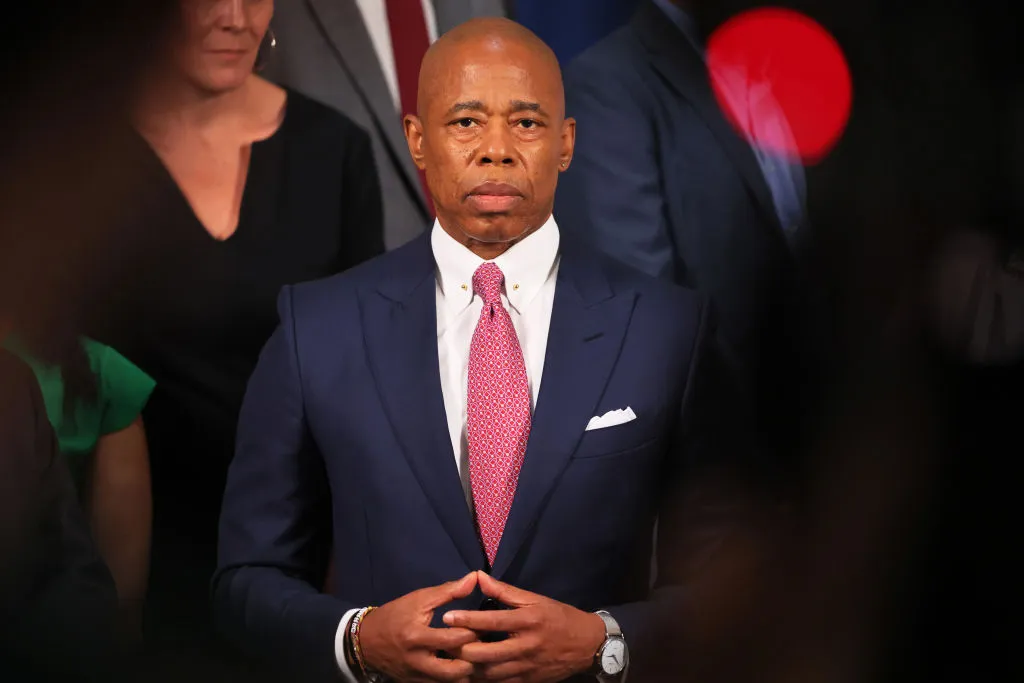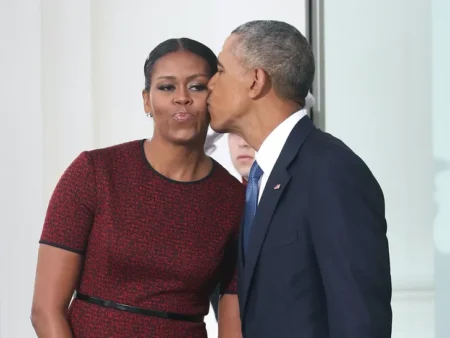Seven Prosecutors Resign After DOJ Drops Corruption Charges Against New York Mayor Eric Adams
The political world was rocked this week as seven prosecutors resigned from the Department of Justice (DOJ) in response to a shocking directive issued to drop the corruption charges against New York Mayor Eric Adams. The decision has sparked outrage and left many questioning the integrity of the U.S. legal system. The resignation of these senior prosecutors has made headlines, revealing an undercurrent of tension and political maneuvering at the highest levels of government.
In an explosive development, the DOJ issued an order on February 10, 2025, requiring that all charges against Mayor Eric Adams be dismissed. The order came as a surprise to many, particularly in the wake of the serious corruption and fraud allegations that Adams faced. The charges, which were brought against him in September 2024, marked a historic moment as Adams became the first sitting mayor in modern New York City history to be indicted. The charges centered on corruption and fraud, raising serious concerns about the mayor’s conduct and leadership.
However, the DOJ’s sudden reversal of course has sparked outrage among the prosecutors involved in the case. Seven assistant U.S. attorneys, including Hagen Scotten, have resigned in protest, citing ethical concerns about the handling of the case. The resignations have sent shockwaves through the legal community and political circles, raising questions about the true motivations behind the DOJ’s decision.
The Controversial Order and Its Aftermath
On February 13, 2025, Hagen Scotten, a senior prosecutor involved in the case, was placed on administrative leave after refusing to endorse the DOJ’s decision to dismiss the charges against Mayor Adams. In a letter addressed to acting Deputy Attorney General Emil Bove, Scotten vehemently criticized the DOJ’s actions, describing them as “dismissal-with-leverage.” Scotten’s bold move has drawn attention for its scathing critique of the department’s political motives.
Scotten’s letter, which was made public shortly after his resignation, laid bare his concerns about the political implications of the DOJ’s order. He accused the department of using its prosecutorial power to influence elected officials in a manner that was inconsistent with the country’s legal traditions. In his words, “Any assistant U.S. attorney would know that our laws and traditions do not allow using the prosecutorial power to influence other citizens, much less elected officials, in this way.”
The resignation letter was a direct response to the DOJ’s reasoning for dropping the charges, which centered on the idea that Adams needed to focus on “illegal immigration” and his upcoming 2025 reelection campaign. The department’s justification for dismissing the case raised questions about whether political considerations were driving the decision, rather than a commitment to justice.
Scotten was particularly critical of the idea that Adams could “devote his full attention and resources” to his reelection campaign if the charges were dropped. In his letter, he stated, “No system of ordered liberty can allow the Government to use the carrot of dismissing charges, or the stick of threatening to bring them again, to induce an elected official to support its policy objectives.” Scotten’s words underscored his belief that the government was leveraging its prosecutorial power to influence political outcomes, which he believed was a grave violation of ethical standards.
The Fallout from the Resignations
The resignations of seven prosecutors have thrown the DOJ into disarray, with many questioning the motivations behind the decision to drop the charges against Mayor Adams. Some legal experts have speculated that the DOJ’s move was politically motivated, given that the charges were brought against Adams during the administration of former President Joe Biden, and the decision to dismiss the case comes at a time when President Trump’s administration is taking control of the department.
The sudden shift in direction raises suspicions about the extent to which political influence may be shaping the DOJ’s decisions. The resignation of so many seasoned prosecutors suggests a deep divide within the department, with many fearing that justice is being sacrificed for political expediency.
Adams, who was indicted in September 2024 on charges of corruption and fraud, had been under intense scrutiny for his alleged involvement in a series of shady dealings that threatened to tarnish his political career. The charges, which were brought by U.S. Attorney Damian Williams, accused the mayor of using his position to facilitate fraudulent activities. Williams, who was appointed by Biden, resigned in November 2024 after Trump’s election, further complicating the political dynamics surrounding the case.
Despite the legal challenges, Mayor Adams has maintained his innocence and has repeatedly denied any wrongdoing. He has argued that the charges were politically motivated and part of a broader effort to undermine his administration. However, the DOJ’s decision to dismiss the case has raised more questions than answers, leaving many to wonder whether Adams will be able to weather the storm and continue in office.
A Deepening Political Crisis
As the scandal surrounding Mayor Adams continues to unfold, the political ramifications are beginning to ripple through both New York City and national politics. Adams, who has positioned himself as a reform-minded leader, now faces the challenge of rebuilding his reputation after a turbulent few months.
The decision to dismiss the charges against him has fueled ongoing debates about the intersection of politics and justice. Critics argue that the DOJ’s actions set a dangerous precedent, where political considerations may override the principles of fairness and accountability. For many, this controversy highlights the fragility of the legal system when it comes to holding public figures accountable for their actions.
The political crisis surrounding Adams is likely to have far-reaching implications, not only for his administration but also for the broader political landscape in the United States. As Adams prepares for his 2025 reelection campaign, he must contend with the fallout from the corruption charges and the perception that his political fortunes have been influenced by forces beyond his control.
What’s Next for Mayor Adams?
As of now, the future of the corruption case remains uncertain. A senior official within the DOJ has confirmed that the charges will be reviewed once a new U.S. attorney is appointed by President Trump. This review could potentially reopen the case, depending on the findings of the new administration. For now, Mayor Adams is free of the legal burdens that have plagued him in recent months, but the shadow of the corruption charges will likely linger throughout his reelection campaign.
Whether or not Adams can recover from this scandal remains to be seen, but the controversy surrounding the DOJ’s actions has already had a significant impact on the political landscape. With seven prosecutors resigning in protest and a growing public outcry, the battle over corruption and political influence is far from over. The next few months will likely see further developments in the case, and the public’s trust in the DOJ may be tested in ways that few anticipated.













